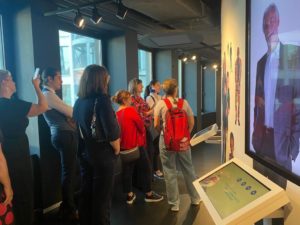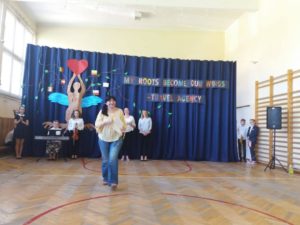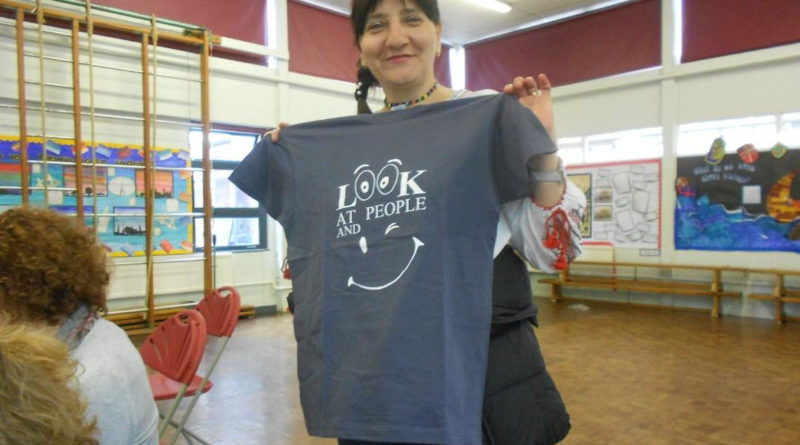Cornelia Melcu, Brașov: “Erasmus teachers use innovative methods, personalize learning, are confident in their own strengths.”
Since 2009, Cornelia Melcu has been a primary education teacher at Nicolae Orghidan Secondary School
No. 9 in Brașov. Since 2012, he is also a Methodist teacher for primary education and a member
of the Consultative Council for Projects and Programs at the Brașov County School Inspectorate.
From 2022, she is the Erasmus+ Romania Ambassador after in 2014, she was accepted as a Scientix
ambassadorin the European education community. With determination, courage and availability, Cornelia
Melcu does professional with other colleagues, she learned to write and implement European projects,
promoting values such as truth, knowledge, solidarity, dignity and evolution.
M.N.: – When did you start to be interested in the Erasmus+ program?
C.M.: – My Erasmus+ journey started with the discovery of the eTwinning program, which was part of the LLP- Lifelong Learing Program, which became, after 2013, Erasmus+. The project partners encouraged me to apply for Comenius grants, and the virtual cooperation in etwinning became face-to-face collaboration in a project involving 8 European countries. Then, in 2013, I successfully applied for the first Erasmus+ grant. Since then, there hasn’t been a year where we haven’t had at least one Erasmus project in the school.

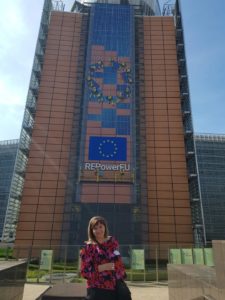 M.N.: – As a primary education teacher, you participate in various learning mobility. Among the dozens of experiences so far, is there one very close to your soul?
M.N.: – As a primary education teacher, you participate in various learning mobility. Among the dozens of experiences so far, is there one very close to your soul?
C.M.: – It is not easy to choose just one mobility, because an Erasmus experience is always memorable through the people met, through the things learned, through the personal and professional growth they give you. Perhaps the closest to my soul can be considered a learning mobility with students, in Cyprus, in a school unlike any I have ever visited at home or abroad: a school with over 80 percent refugee students . I was first of all impressed by the teachers’ approach to learning, their dedication, patience and trust, and their unique teaching methods. I learned that if you care, language is not an impediment: education is done in any conditions, if you want it, if you put your heart and if you find the bridge between all the factors involved: children, teachers, parents and the community.
M.N.: – Cornelia, you have also been a Methodist teacher for over 12 years. Did you notice differences in the evaluation of the teachers who benefited from Erasmus compared to those who were not in learning mobility?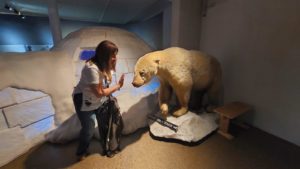
C.M.: – There are certainly clear differences between Erasmus teachers and those who did not benefit from such an experience. Erasmus teachers use innovative methods, personalize learning, are self-confident and, very importantly, accept mistakes and learn from them. I have also noticed that they are not as fearful and emotional as others because they have a greater degree of adaptability to stress and novelty.
M.N.: – Were you also a trainer in the Erasmus projects? How was the experience?
C.M.: – In most mobilities I supported training workshops on various topics, and last year I was invited, as an expert, by a school in Greece. Apart from the fact that training adults, although it is more difficult, is rewarding in the long term – people are transformed, and thanks to you – I would add that it is also a validation of a job well done. When those you train keep in touch with you, send feedback, share experiences, you realize that everything you’ve learned you pass on and we grow, in a wide world, together. It is also wonderful that you are an ambassador for Romania, which is becoming known and valued through its people.
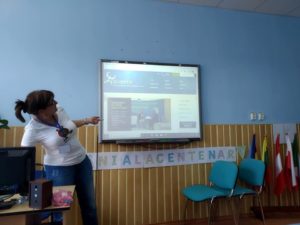 M.N.: – The school where you teach can be a model for European pedagogues as well. What would be the top three educational activities inspired by Eramsus plus that you recommend to them?
M.N.: – The school where you teach can be a model for European pedagogues as well. What would be the top three educational activities inspired by Eramsus plus that you recommend to them?
C.M.: – I would say, without vain praise, that our school is a model for other European schools. In recent years, we have had professors and students from Spain, Portugal and other parts of Europe who have asked us to do internships at our institution and whom we have hosted. The use of technology to support the didactic act – the school is equipped with smart boards, laptops and video projectors in every classroom – is one of the activities we demonstrate. Then, outdoor activities are another component of the program offered by our institution, since we are in a region that allows this. Local traditions, customs, culture and civilization are also always present in what we prepare, because they are part of the national heritage and we strongly believe that they should be promoted.
